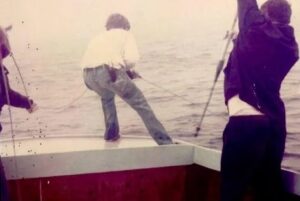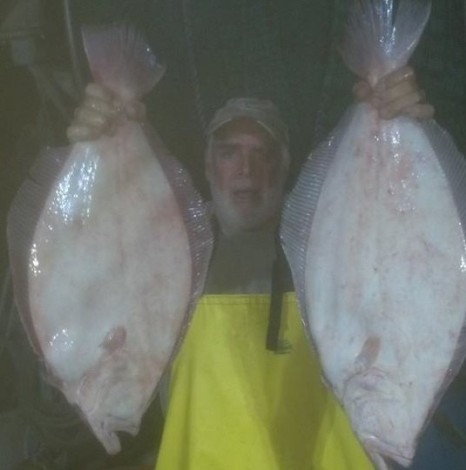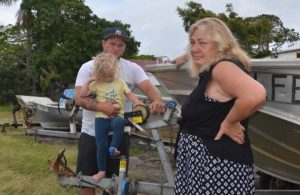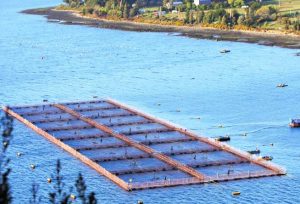Tag Archives: New federal regulations
New regulations on lobstering delayed amid pushback from Seacoast lobstermen
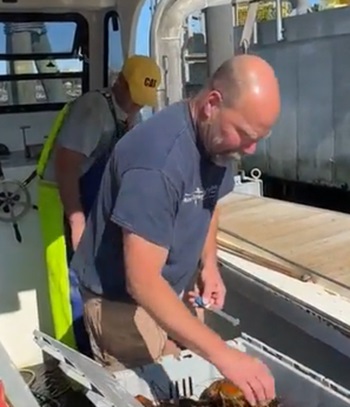 New federal regulations on the lobstering industry are being delayed after months of pushback from local lobstermen. The rules would increase the minimum acceptable size for lobsters that can be caught and require bigger escape vents to be added to traps. Regulators with the Atlantic States Marine Fisheries Commission told News9 the goal of the new rules, laid out in policy called Addendum 27, are aimed at protecting the population of younger lobsters and allowing them to grow to a size where they can reproduce and be suitable for harvesting. Starks said the number of those younger lobsters have declined in research counts in recent years, triggering the new regulations. However, local lobstermen have cast doubt on those studies and railed against the rules laid out in Addendum 27. Video, more, >>CLICK TO READ<< 11:18
New federal regulations on the lobstering industry are being delayed after months of pushback from local lobstermen. The rules would increase the minimum acceptable size for lobsters that can be caught and require bigger escape vents to be added to traps. Regulators with the Atlantic States Marine Fisheries Commission told News9 the goal of the new rules, laid out in policy called Addendum 27, are aimed at protecting the population of younger lobsters and allowing them to grow to a size where they can reproduce and be suitable for harvesting. Starks said the number of those younger lobsters have declined in research counts in recent years, triggering the new regulations. However, local lobstermen have cast doubt on those studies and railed against the rules laid out in Addendum 27. Video, more, >>CLICK TO READ<< 11:18

On The Ropes – Federal court rules against lobster industry in appeal of whale protection regulations
“Obviously, it’s devastating to the lobster industry,” Stonington Town Manager Kathleen Billings told the Islander. Stonington lands by far the most lobsters in the state. In total, Maine lobstermen added an estimated $724,949,426 worth of lobster landings to the state commercial fishery in 2021. “We have a lot at stake,” Billings continued. “[Lobstering] makes up $60 [million] to $70 million to our economy and to have this recent ruling, and also too with the Seafood Watch list designation, they pretty much put a torch to our industry and burnt it to the ground for us.” >click to read< 08:55

Massachusetts weighs relief fund to the lobster industry
Lawmakers want to create a new fund to help commercial lobstermen whose livelihoods are being impacted by state and federal regulations aimed at protecting critically endangered North Atlantic right whales. An amendment added to the Senate version of the $49.7 billion state budget, approved Thursday, May 26, would set up a lobstering closure mitigation fund through the state’s unemployment system with at least $12 million in initial funding. The amendment was co-sponsored by Sens. Bruce Tarr, R-Gloucester, and Patrick O’Connor, R-Weymouth, who say the move will provide “much needed relief” for the lobster industry. “It is absolutely critical that we provide relief to the people in this industry which is so important to the commonwealth,” Tarr said. “As the second largest provider of lobster in the nation these workers are needed for another day, another year, and another generation.” >click to read< 08:03
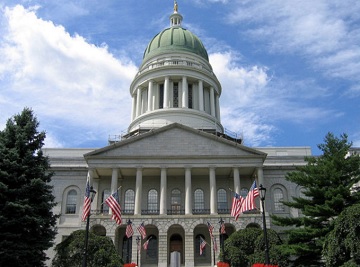
$30 million relief fund for lobstermen gets initial nod in Maine House
Starting on May 1, lobstermen in Maine will have to begin using weaker rope or special links on traplines that are designed to allow a whale to break free from fishing gear. The new federal regulations are aimed at preventing endangered North Atlantic right whales from potentially deadly entanglements. Rep. Billy Bob Faulkingham, a fisherman from Winter Harbor in Hancock County, said the proposed $30 million fund from the state will help mitigate the costs for an iconic industry that generates more than $1 billion for the state. “We are going to be hurting for the money to comply with those rope regulations,” >click to read< 13:37
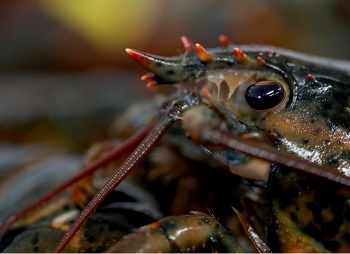
Federal windfall won’t put a stop to state lobster industry relief bills
Although Maine’s lobster industry is set to receive $17 million in federal funding as part of the 2022 omnibus spending package, it is unlikely to affect two bills going through the Legislature that seek more than $30 million in state funds for the industry. The spending bill will bring more than $200 million in funding for projects across the state. For the lobster industry, it includes $14 million to help lobstermen comply with new federal regulations intended to protect endangered North Atlantic right whales, set to take effect May 1, along with $760,000 for the Department of Marine Resources to conduct outreach and education among lobstermen, and $2.3 million for right whale research, monitoring and conservation. >click to read< 17:28
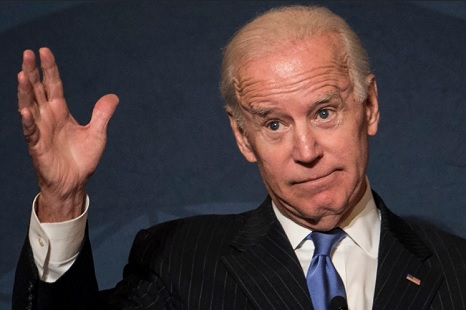
Maine lobster industry rocked by new, unworkable federal regulations
New federal regulations created to protect the endangered right whale will close off a nearly 1,000 square mile strip in the Gulf of Maine to lobstering,,, “I was contacted yesterday by someone from the media to ask me about the closure, and that was the first I heard of a closure because a closure wasn’t even on the table for us. It wasn’t even supposed to be thought of and then, all of a sudden, Joe Biden just decided he needed to close a big area of ocean. It came as a surprise to everybody. It came as a surprise to the fishermen, it came as a surprise to everybody in the state of Maine, every politician. No one saw this 950 square mile closure coming,” Rep. Billy Bob Faulkingham said. >click to read< 07:29
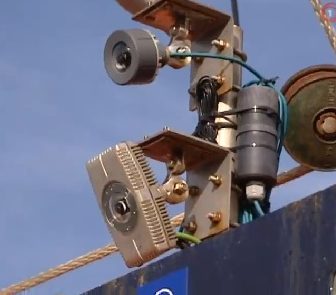
Electronic Monitoring of the Lobster fishery, Tracking of the Red Shrimp fishery to be imposed
America’s lobster fishing businesses could be subjected to electronic tracking requirements to try to protect vulnerable right whales and get a better idea of the population of the valuable crustaceans. The fishery has collapsed in southern New England, however. Fishermen from New York, Connecticut and Rhode Island were once a significant part of the fishery,,, >click to read<…The American red-spotted shrimp fishery may be subject to electronic tracking requirements to protect vulnerable right whales and better understand precious crustacean populations. However, fishing has collapsed in southern New England. Fishermen in New York, Connecticut, and Rhode Island used to be an important part of the fishing industry, Starks said, but the stock of red-spotted shrimp in southern New England is now depleted. Scientists have linked the collapse of fishing in southern New England to warming seawater. >click to read< 10:50
Shellfish Harvester Education Program – Get some training, get your oyster license – Video
 BILOXI, MS (WLOX) – New federal regulations are now in place regarding the oyster industry in Mississippi and other states. Anyone involved in the industry in any capacity now has to receive specialized training in the sanitary harvesting and transporting of the delicacy. Read more here 11:24
BILOXI, MS (WLOX) – New federal regulations are now in place regarding the oyster industry in Mississippi and other states. Anyone involved in the industry in any capacity now has to receive specialized training in the sanitary harvesting and transporting of the delicacy. Read more here 11:24


































